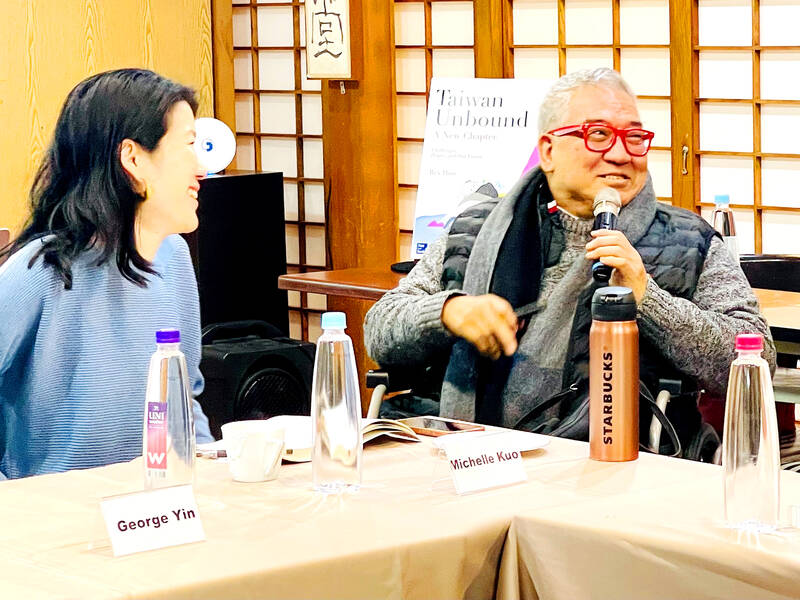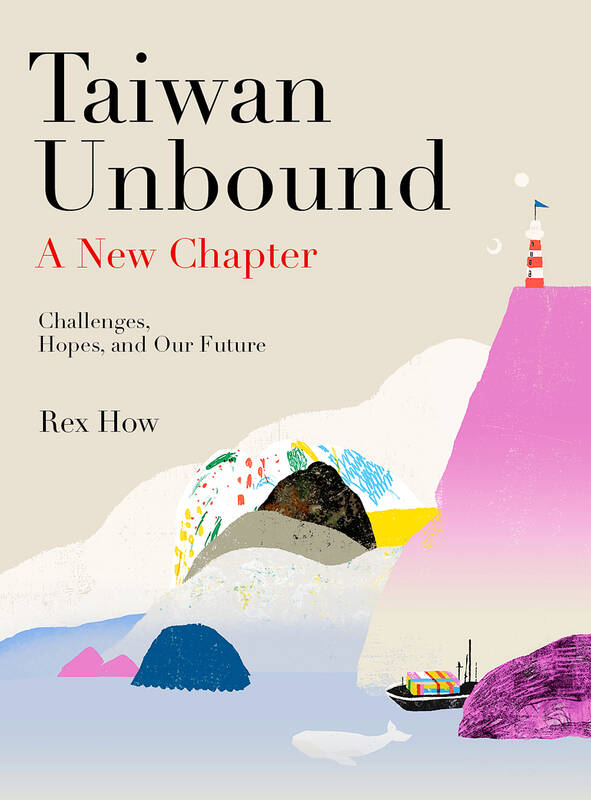The Sunflower movement of 2014 can be seen as a pivotal moment in Taiwan’s contemporary politics — one that has had ramifications for the current presidential campaign. Most obviously, the protest helped propel Ko Wen-je (柯文哲), the Taiwan People’s Party (TTP) presidential candidate, into public life, as he harnessed enthusiasm for greater political accountability and an end to partisan politics to capture the Taipei mayorship later that year.
Appearing alongside the protestors in and outside the occupied Legislative Yuan, Ko earned their trust as someone who was prepared to defend Taiwan against democratic backsliding as represented by the “black box” passage of the cross-strait service trade agreement.
A decade on, Ko is now calling for the resurrection of the trade pact. Accused of hypocrisy, he argues that it was always the underhanded way the Chinese Nationalist Party (KMT) tried to ram it through the legislature, rather than its content, that he had opposed. While some of his supporters, including former aides and associates, are appalled, others have remained unperturbed by even this most dramatic of U-Turns. What explains this unwavering support?

Photo courtesy of Locus Publishing
“He has a totally different mentality from other politicians that is quite suitable for today’s social media,” says Rex How (郝明義), a publisher and former journalist, with decades of experience in Taiwanese politics. “He says unusual things that make the young generation think that he’s candid.”
While media and opponents accuse Ko of frequent contradictions, he has cottoned on to the short attention spans that social media memes and reels engender and used them to his advantage. Highlighting Ko’s use of YouTubers and social media influencers, How says that feedback on trending topics among youngsters helps determine Ko’s talking points.
“If he doesn’t get a positive response, then he’ll change to a totally different direction,” How says. “So, in the evening, he’ll be talking differently from the morning, based on which is getting more volume.”

Photo courtesy of Locus Publishing
How offered these insights at the launch of the English-language edition of his book, titled Taiwan Unbound: A New Chapter.
As an advisor on cultural affairs to former president Ma Ying-jeou (馬英九) from 2009-2013, How had both a personal and professional connection to the trade deal debacle. In fact, he is acknowledged as playing a key role in exposing the closed-door negotiations over the pact between the KMT and the Chinese Communist Party.
Having published a widely circulated article on what he saw as the risks of the trade pact to Taiwan’s sovereignty, How resigned from his position and joined the Sunflowers in calling for “collective action to prevent the agreement’s implementation.”
Yet, as How notes in the book’s preface, the Sunflower movement “not only thwarted the [trade pact] but had a significant afterlife,” which included the emergence of Ko and the TPP as a political force.
‘OCEANIC GENERATION’
While How has little time for Ko’s brand of populist politics, he maintains faith that a new generation of Taiwanese will eventually turn the tide. He calls this the “Oceanic Generation” in reference to their outward view and reach, as opposed to the “terrestrial” mindset of their predecessors.
Others are less optimistic. Speaking at the same event, William Yang (楊?暐), queried How’s positive outlook in the current political climate.
“What I see in this election cycle is withdrawal from democratic rights and practices, and — at the same time — decisions being made irrationally,” says Yang, a freelance correspondent for Voice of America.
Having conducted extensive “on the ground” interviews and research among various demographics, Yang believes that decision-making is driven by misinformation and frustration. While the former is an issue among the older generation, the latter is a strong influence among the youth.
“Even students from top universities are either not coming out to vote or choosing the TPP because they feel cheated by the two big parties,” Yang says. He cites attempts to play up the “China-threat theory” and a failure to address domestic problems as factors.
“They don’t see the threat and they also don’t see the problems that are really troubling them being fixed,” he said.
FOOL ME ONCE
Because of this, the logic among such younger voters is that any new alternative is ipso facto better than the same tired old formula.
“It’s not because they support his policies but because [they think], ‘Even if we get cheated by him one time, at least we’ll know the next time.’”
Such a reaction, says Yang, is understandable. Yet, he fears the lack of interest in the “content” of politics in Taiwan does not bode well for future engagement among young people.
“They don’t seem to be interested in learning about policies that affect Taiwan,” Yang says. “Where do you get hope from the younger generation?”
While How agreed that the current cohort of young voters may be beyond reach, he is still confident that a new generation of politically conscious youth will blossom.
“The seeds and, in effect the cost, were planted 10 years ago [with the post-trade pact political climate],” How says. “But I’m still hopeful.”
How highlights developments in Taiwan’s education system, seismic during the transition to democracy, and incremental since that time, as reasons for optimism.
If, as predicted, the DPP wins again, the incoming administration must undertake reforms to the education and examination systems to encourage greater social and political participation.
“Everyone thinks that changing education is a long process,” How says. He quotes a Chinese proverb about the difficulty of cultivating an educated society to illustrate the deep-rootedness of this belief. “But it could also be the quickest way,” he says. “Because we have no other choice.”

That US assistance was a model for Taiwan’s spectacular development success was early recognized by policymakers and analysts. In a report to the US Congress for the fiscal year 1962, former President John F. Kennedy noted Taiwan’s “rapid economic growth,” was “producing a substantial net gain in living.” Kennedy had a stake in Taiwan’s achievements and the US’ official development assistance (ODA) in general: In September 1961, his entreaty to make the 1960s a “decade of development,” and an accompanying proposal for dedicated legislation to this end, had been formalized by congressional passage of the Foreign Assistance Act. Two

March 31 to April 6 On May 13, 1950, National Taiwan University Hospital otolaryngologist Su You-peng (蘇友鵬) was summoned to the director’s office. He thought someone had complained about him practicing the violin at night, but when he entered the room, he knew something was terribly wrong. He saw several burly men who appeared to be government secret agents, and three other resident doctors: internist Hsu Chiang (許強), dermatologist Hu Pao-chen (胡寶珍) and ophthalmologist Hu Hsin-lin (胡鑫麟). They were handcuffed, herded onto two jeeps and taken to the Secrecy Bureau (保密局) for questioning. Su was still in his doctor’s robes at

Last week the Democratic Progressive Party (DPP) said that the budget cuts voted for by the China-aligned parties in the legislature, are intended to force the DPP to hike electricity rates. The public would then blame it for the rate hike. It’s fairly clear that the first part of that is correct. Slashing the budget of state-run Taiwan Power Co (Taipower, 台電) is a move intended to cause discontent with the DPP when electricity rates go up. Taipower’s debt, NT$422.9 billion (US$12.78 billion), is one of the numerous permanent crises created by the nation’s construction-industrial state and the developmentalist mentality it

Experts say that the devastating earthquake in Myanmar on Friday was likely the strongest to hit the country in decades, with disaster modeling suggesting thousands could be dead. Automatic assessments from the US Geological Survey (USGS) said the shallow 7.7-magnitude quake northwest of the central Myanmar city of Sagaing triggered a red alert for shaking-related fatalities and economic losses. “High casualties and extensive damage are probable and the disaster is likely widespread,” it said, locating the epicentre near the central Myanmar city of Mandalay, home to more than a million people. Myanmar’s ruling junta said on Saturday morning that the number killed had